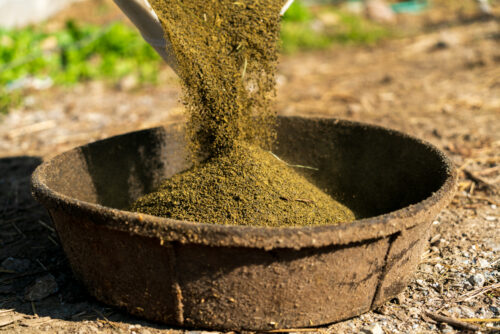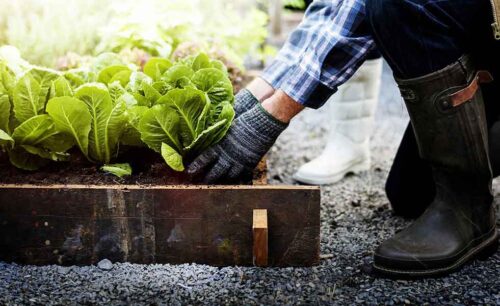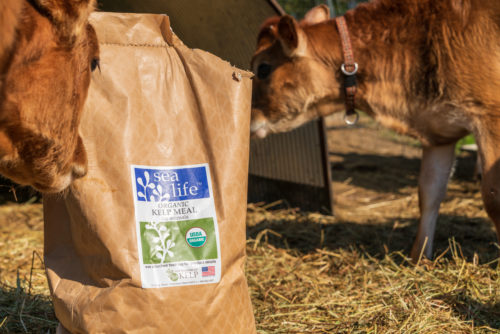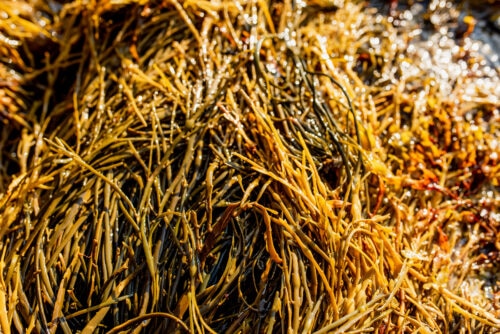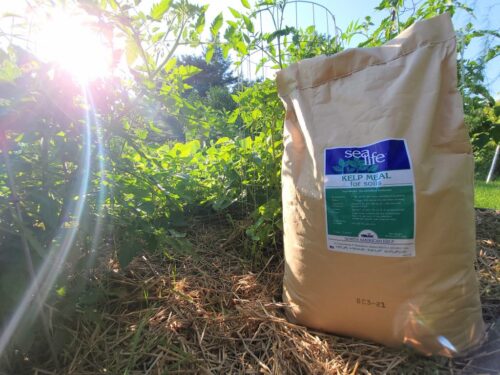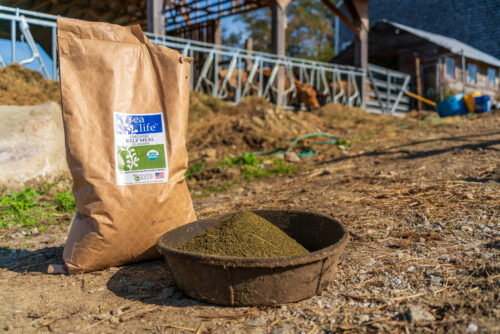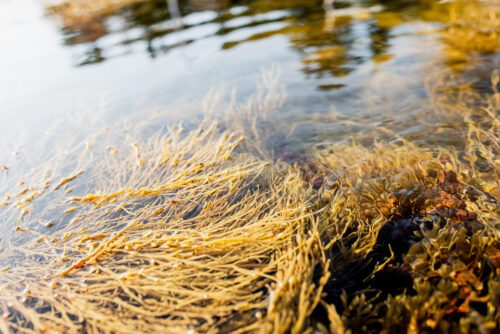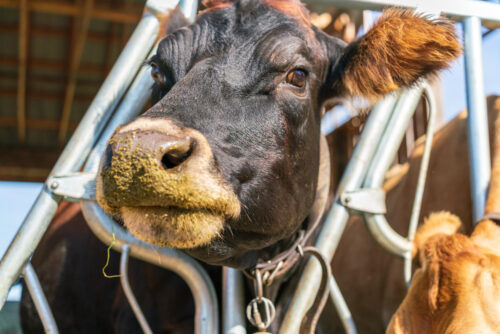Kelp Meals for Animals and Plants
2 CommentsSeaweeds, especially brown seaweeds, contain a variety of vitamins and minerals, such as iodine, amino acids, thiamin, and vitamins A, C, and B12. Kelp meal in particular has recently grown in popularity in households and commercially because they have been proven to improve soil fertility.
In this article, we will take a closer look at the effects and benefits of kelp meal as an organic-use soil amendment and animal feed supplement, and how to use them effectively.
Kelp Meal As A Soil Conditioner
Kelp meal is an excellent addition to the garden that can be used on various crops. It provides plants with valuable micro and macro nutrients, minerals, and vitamins. It can also enhance soil structure, lessen drought stress, and improve plant tolerance to frost.
Benefits of Kelp Meal for Plants
Here are some additional advantages of using kelp meal as a soil conditioner:
- It helps with beneficial microbial growth which then fosters a healthier soil.
- It is ideal for chemical-free planting and farming because they are natural.
- It can enhance the efficiency of any soil or potting mix, allowing you to get the most out of a small amount of space.
How To Use Kelp Meal As A Soil Conditioner
The easiest application method is spreading it around the base of the plants, crops, shrubs, and flowers. It can also be used in plant potting medium or mixed directly into the soil.
Here are other kelp meal tips for your specific application:
- Early spring: apply at a rate of 1 lb. per 100 square feet and mix into the topsoil.
- Summer: Side-dress rows with 0.5 lb. per 100 square feet. Repeat in early, mid, and late summer.
- After harvest: Following harvest and bed cleanup, apply 1 lb. per 100 square feet and mix into the topsoil.
Kelp Meal As An Animal Feed Supplement
Kelp meal meets the trace element demands of animals typically lacking in mineral mixes, land-grown feeds, and pastures due to erosion and leaching. Moreover, research findings are indicating that farmers and breeders rely on them to ensure the health and productivity of their animals.
Benefits of Kelp Meal for Animals
There are substantial advantages to using kelp meal as an animal feed supplement for chickens, cattle, horses, sheep, goats, and other poultry creatures:
- It enhances animal feed utilization.
- It can reduce breeding problems for pigs and cows.
- It is helpful in boosting animal metabolism.
- It has been shown to boost overall gains, such as milk production in cows, egg production in chickens, and weight in pigs, cattle, and horses.
- It can minimize internal parasites in pigs.
How To Use Kelp Meal As Feed Supplement
Here are some suggested feeding rates for animals. These generally range within one to two percent of the feed ration:
- Horses: ½ oz. per day
- Dairy cows and cattle: 2-4 oz. per day
- Goats: 2% of the food ration
- Chickens: 1% of the total feed pre-mixed
- Sheep: 2% of the food ration
- Turkeys: 1-2% of the total feed pre-mixed
- Dogs: ¼ teaspoon per 25 lbs. body weight
- Cats: 1 pinch (approx. 1/16 teaspoon) per day
Quality Kelp Meal From North American Kelp
For over 50 years, North American Kelp has been your trusted provider of responsibly and sustainably sourced seaweed products. Our products are single-ingredient, renewable sources of minerals and vitamins for your animals and plants. We use a delicate drying process to preserve the seaweed’s nutrients, color, and a savory flavor, leading to an appetizing supplement that livestock and pets enjoy.
Our skilled and committed team is ready to help you meet your needs! Contact us today for more information or inquiries about our seaweed products.
Uses Of Kelp As A Soil Conditioner
Leave a CommentSoil conditioners improve soil quality by boosting nutrient levels, increasing water absorption, and improving aeration. The most common conditioners include compost, animal manure, vermiculite, peat, and more. While all types universally amplify the health of your soil in one way or another, their benefits and qualities differ.
If you’re looking for a slow-release soil conditioner for your commercial horticulture, agriculture production, or manufacturing operation, kelp meal is an excellent option. This soil-building seaweed product feeds and stimulates beneficial microorganisms and improves soil quality, texture, and water and nutrient-holding capacity.
In this article, we will walk you through the uses and benefits of kelp meal as a soil conditioner.
What Is Kelp Meal?
The variety North American Kelp harvests, Ascophyllum nodosum, grows primarily off the coast of Maine, Canada, Ireland, Iceland, and Norway. The nutrient dense ocean provides a great environment for the seaweed to grow and flourish. They harvest exclusively from the coast of Maine only.
Kelp meal is made from dried and ground seaweed which can then be used in agriculture to improve soil fertility and promote beneficial microbial growth. They provide beneficial micronutrients, and vitamins that aid in improving soil conditions, reducing drought stress, and increasing frost tolerance.
What Are the Uses and Benefits of Kelp Meal in Soil Conditioning?
Here are the advantages of using kelp meal as a soil conditioner:
Improves Soil Microbial Activity
Ascophyllum nodosum is high in protein, iodine, and other minerals beneficial to the soil. With its variety of nutrients, this seaweed choice energizes and feeds plants of all types.
Provides Natural Ingredients and Nutrients
Seaweed has the advantage of being a completely natural product that contains over 70 vitamins and minerals. You can apply kelp meal in any soil and not worry about toxic substances and other waste byproducts.
SeaLife™ Kelp Meal for Soils From North American Kelp
SeaLife™ Kelp Meal for Soils is a coarse ground kelp meal soil conditioner made from 100% Ascophyllum nodosum. We collect the seaweed off the coast of Maine’s and dry it at a low temperature to maintain its beneficial nutrients, trace elements, amino acids, and carbohydrates.
North American Kelp has been your dependable source of responsibly and sustainably sourced seaweed products for over 50 years! Our experience makes us a leader in the seaweed industry. Let us help you integrate kelp meal into your soil conditioner regimen or products.
Contact us today to learn more about kelp and the products we offer!
How To Use Kelp for Animal Supplements
2 CommentsWith its high nutritional value, seaweed is quickly becoming a sought-after superfood for animal diets. It contains various micronutrients, making it an all-natural feed supplement for livestock and animals. The seaweed can also provide them with over 100 bioavailable vitamins and minerals.
In this article, we’ll go over the benefits of seaweed and how to effectively include it as part of an animal’s diet.
The Nutritional Benefits of Seaweed
Seaweed absorbs minerals and micronutrients from the sea, making it among the most nutrient-dense foods available. It is an excellent source of more than 60 different minerals and contains 21 amino acids and 12 vitamins. Some nutrients packed in seaweed, especially brown seaweed, include copper, calcium, carotenoids, dietary sodium, fiber, folate, flavonoids, iodine, iron, magnesium, manganese, pantothenic acid, riboflavin, and zinc.
Seaweed’s trace minerals are beneficial in promoting good health and immune functions. It can also help reduce the risk of nutritional disorders like milk fever and grass tetany, reduces ruminal methane production, and balances a diet of dried feed and roughage.
Animals That Benefit From Seaweed
Animals like cattle, horses, pigs, sheep, and goats benefit from seaweed in numerous ways. This supplement can improve feed utilization, serve as an excellent source of iodine, can improve milk production, and has been shown to support weight gain. It can also help reduce breeding problems, internal parasites, white muscle disease, and wool shedding.
For dairy cows, seaweed helps increase the iodine content and milk butterfat levels with fewer fluctuations. It can also decrease the chance of mastitis, milk fever, and breeding problems.
Chickens also benefit from seaweed; the supplement can help increase egg production, and it can strengthen the eggs’ shells.
Finally, seaweed can promote flexibility and improve the sheen of the skin and coat of dogs, cats, horses, and the like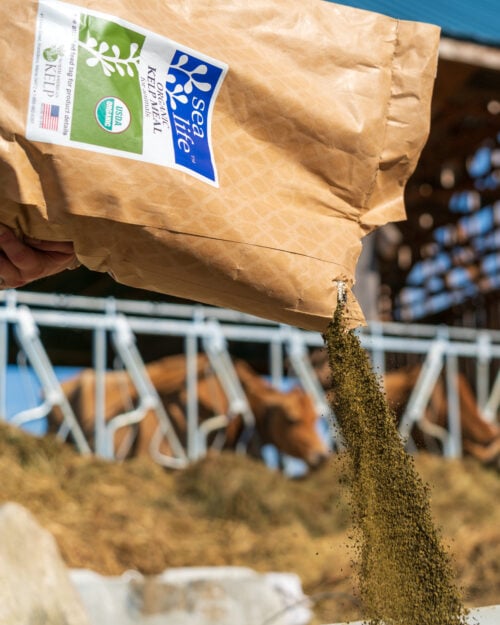
Portion Recommendation When Using Seaweed as an Animal Supplement
To help with intake, seaweed is dried and ground and can be incorporated into an existing feed program. During the process, low heating temperatures are maintained to preserve the nutrients.
Here are recommended feeding ratios for livestock and pets:
- Dairy and beef cattle: 2 to 4 oz. per day
- Calves: 1 to 2 oz. per day
- Range cattle: Free choice at two parts meal to one part salt mix
- Horses, sheep, and goats: ¼ to ½ oz. per day
- Swine: Free choice or 50 lbs. to 2,000 lbs. of complete ration
- Chickens: 1% of total feed pre-mixed
- Turkeys: 1 to 2% of total feed pre-mixed
- Dogs: ¼ teaspoon per 25 lbs. body weight
- Cats: 1 pinch or 1/16 teaspoon per day
Seaweed Feed Supplements From North American Kelp
North American Kelp is your reliable source of seaweed feed supplements for your pets and livestock. Our Sealife™ kelp meal is made from 100% wild-harvested seaweed from the Maine coast and is suited for year-round supplementation.
If you’re looking for an excellent natural feed supplement for your animals, North American Kelp is the partner you need! Contact us today for more information about our seaweed products!

